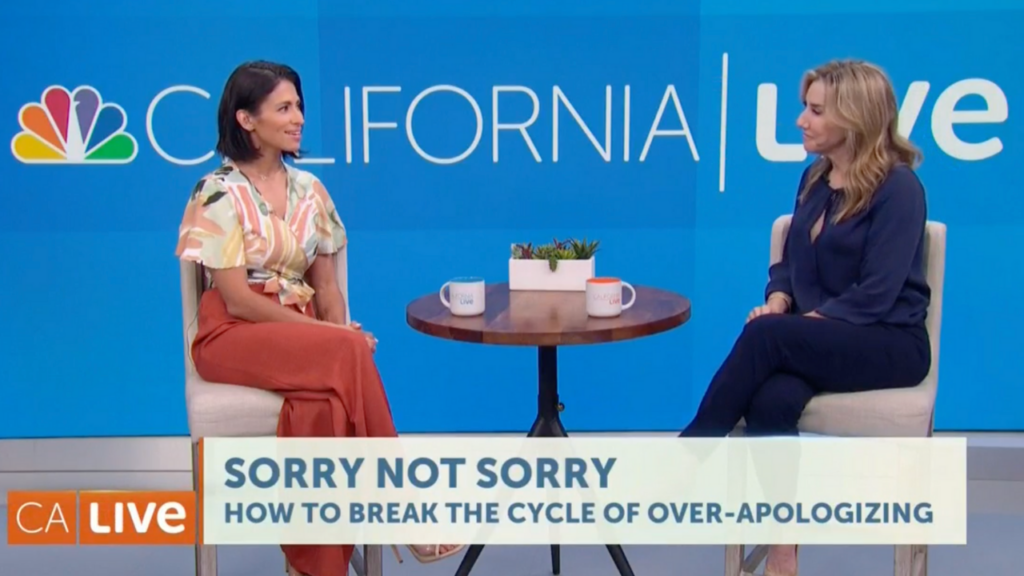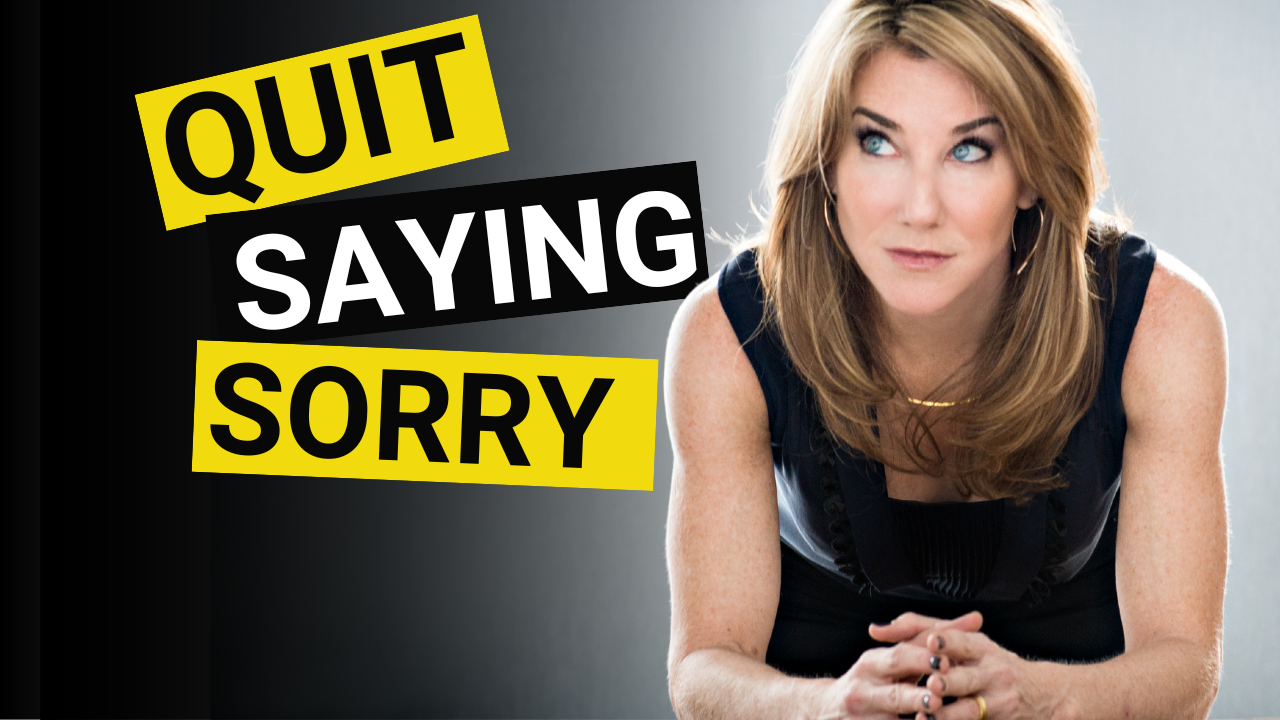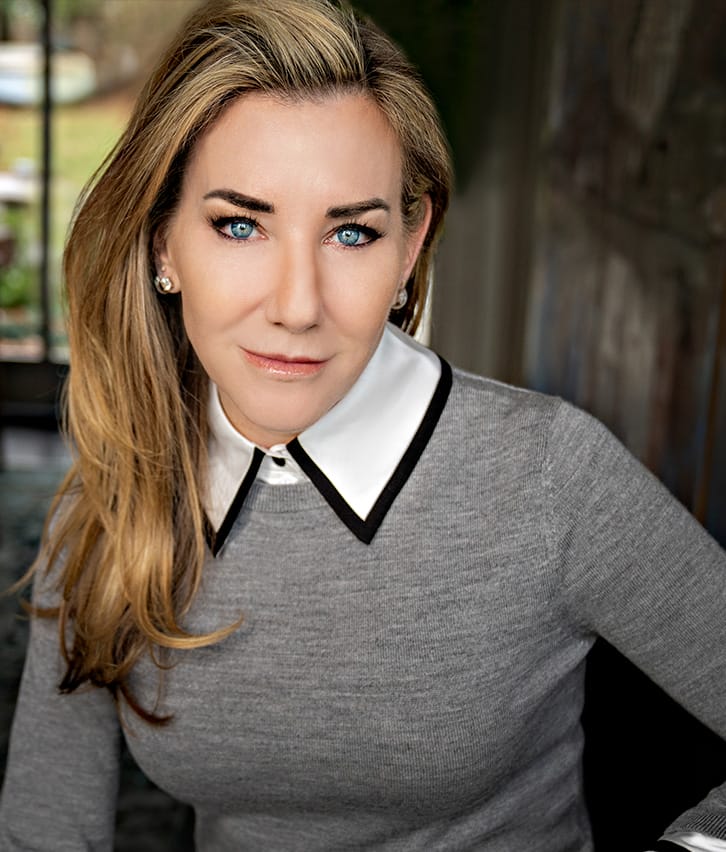Did you know that one in four people apologize for something outside of their control every day?
I’m not saying we should never apologize. Genuine apologies have their place and are crucial for maintaining healthy relationships and owning up to our mistakes. But there’s a big difference between apologizing for something that genuinely requires an apology and the kind of reflexive, habitual apologizing that many of us engage in daily.
So, what do we over apologize for? For bumping into someone, for speaking up in a meeting, for asking a question, for someone else’s mistake, for breathing.
Why Do We Do This?
Many of us have been socialized to believe that apologizing is polite, especially women. We’re taught from a young age to be agreeable, to smooth things over, and to avoid conflict. While these intentions are often well-meaning, they can lead to a habit of over-apologizing that’s hard to break.
(By the way, it’s also a fact that men and women BOTH apologize the same percentage of times we think we are wrong — 80% across both genders — it’s just that men don’t apologize as often because, well, y’all don’t think you are wrong as much.)
There’s also the fear of being perceived as rude or aggressive. In professional settings, especially, we might apologize to avoid seeming too assertive or demanding. But here’s the thing: being assertive isn’t the same as being rude. We can be direct and confident without being disrespectful.
What’s the Big Deal?
This constant apologizing is not only unnecessary but also detrimental to our self-esteem and how others perceive us. First, duh, the voice we hear most often is our own, and thoughts become emotions and emotions become words and words become narratives and narratives become destinies. I know, I know, that’s some woo woo smack right there, but there’s science behind it.
Over-apologizing reinforces feelings of inadequacy and guilt. It’s like we’re constantly telling ourselves and the world that we’re not good enough, that we’re always in the wrong. This can lead to a cycle of low self-esteem and self-doubt, which is incredibly hard to break. And, really, don’t we all have enough haters who do that to us anyway?
But, second, when we apologize for every little thing, we diminish our own value and create an impression that we’re always at fault or less competent. It’s like we’re constantly putting ourselves down, reinforcing a narrative that we’re always in the wrong or that we need to take up less space. So, when leadership is thinking about who to put on that big new project or that whale of a client account, are they going to pick the person who seems to always be in the wrong? Not a chance.
Breaking the Habit
So, how do we stop this cycle? Here are a few steps that have worked for me and that I hope will work for you too:
- Awareness: Start by noticing how often you apologize. Keep a journal or make a mental note each time you say “I’m sorry.” This awareness is the first step to changing the habit.
- Practice Assertiveness: Practice stating your needs and opinions confidently. Use “I” statements, such as “I think,” “I feel,” or “I need.” This helps you communicate clearly and assertively without feeling the need to apologize.
- Embrace Silence: Sometimes, we apologize to fill silence or to ease our own discomfort. Learn to embrace silence and be comfortable with it. It’s okay not to fill every moment with words. Bonus: often when you are silent, the actual wrongdoer will themselves apologize first.
- Replace Apologies with Gratitude: Instead of saying “I’m sorry for being late,” try “Thank you for waiting for me.” This shifts the focus from a negative to a positive and shows appreciation rather than guilt.
- Own It, and Move On: If you did, in fact, make a mistake, own it, apologize for it, and move the f*ck on. No one is still thinking about how you were 30 seconds late to the meeting, unless you insist on talking about it for the first ten minutes of the meeting.
Because, here is what I know to be true:
You don’t need to apologize for taking up space, for having an opinion, or for being yourself. You are worthy of respect, and you don’t need to undermine your value with unnecessary apologies. Start embracing your worth and stop apologizing for your existence.
…unless you showed up late with half-caf iced mocha latte with caramel drizzle on top and are sipping it loudly while being unprepared and scrolling through your phone. For that, you should definitely apologize.
And, you should also share this with a friend who over apologizes, and make a pact that , together, you will hold each other accountable.
By the way, I joined California Live to talk about over apologizing. This post on LinkedIn quickly got more than 150,000 impressions. Clearly, this topic hits a nerve.




